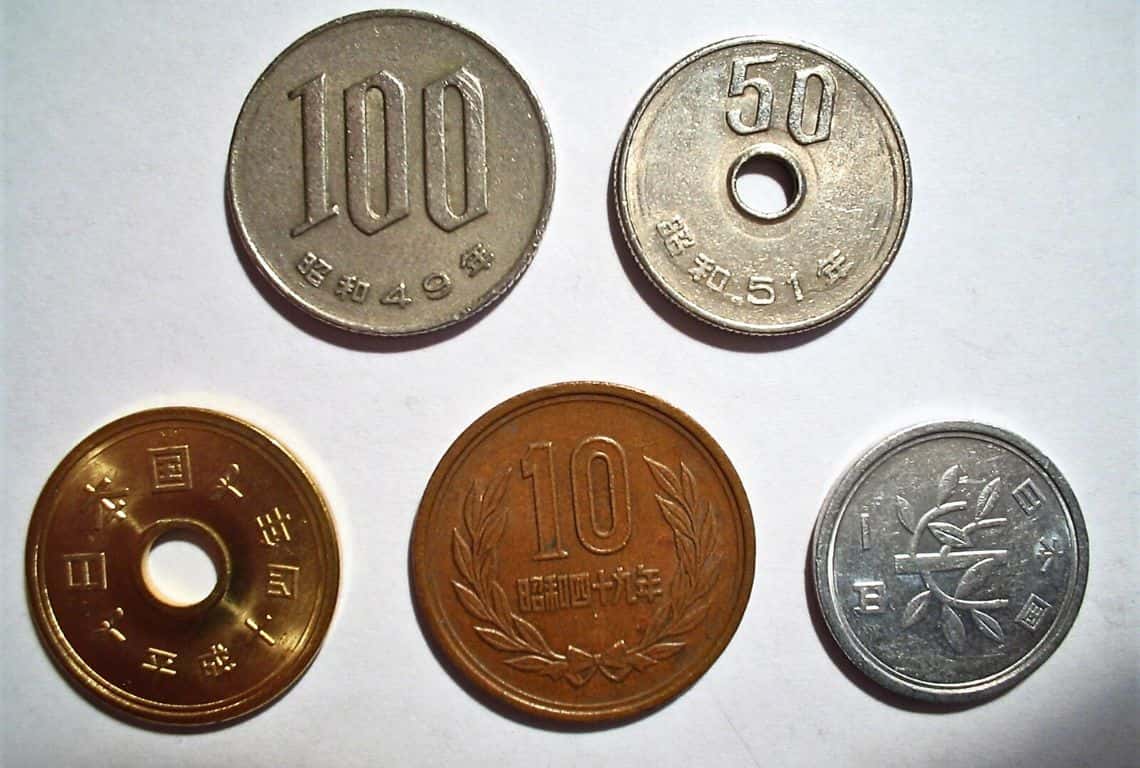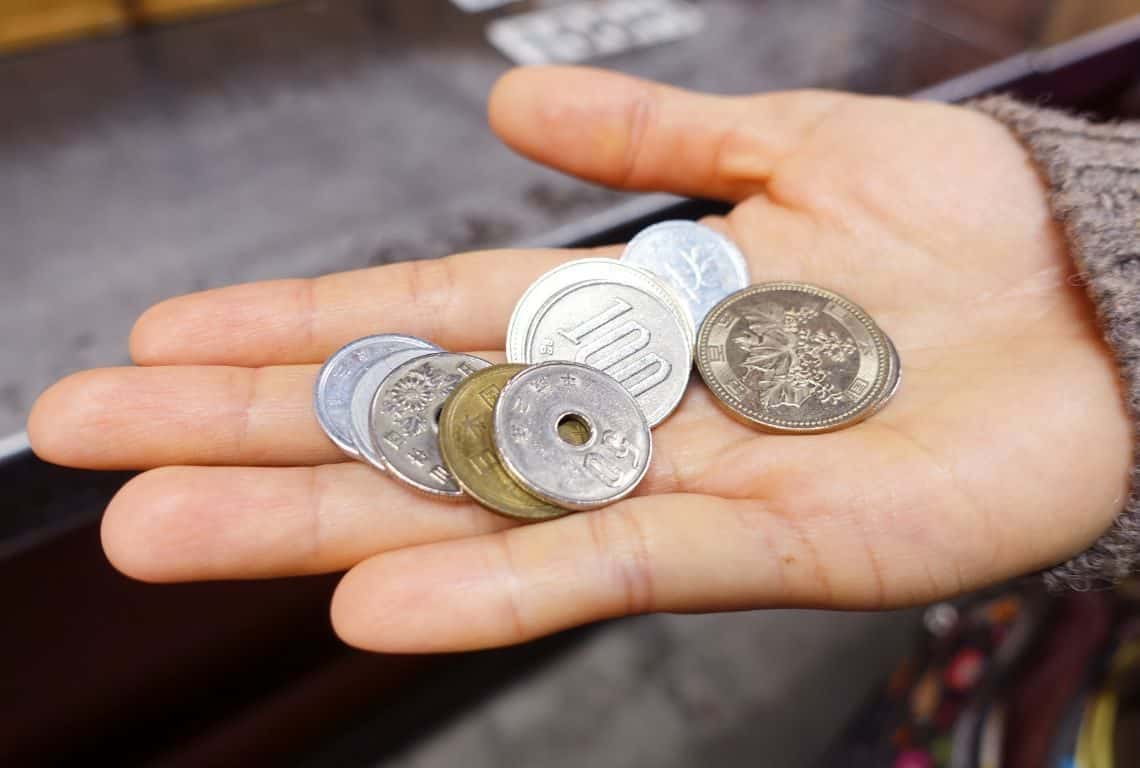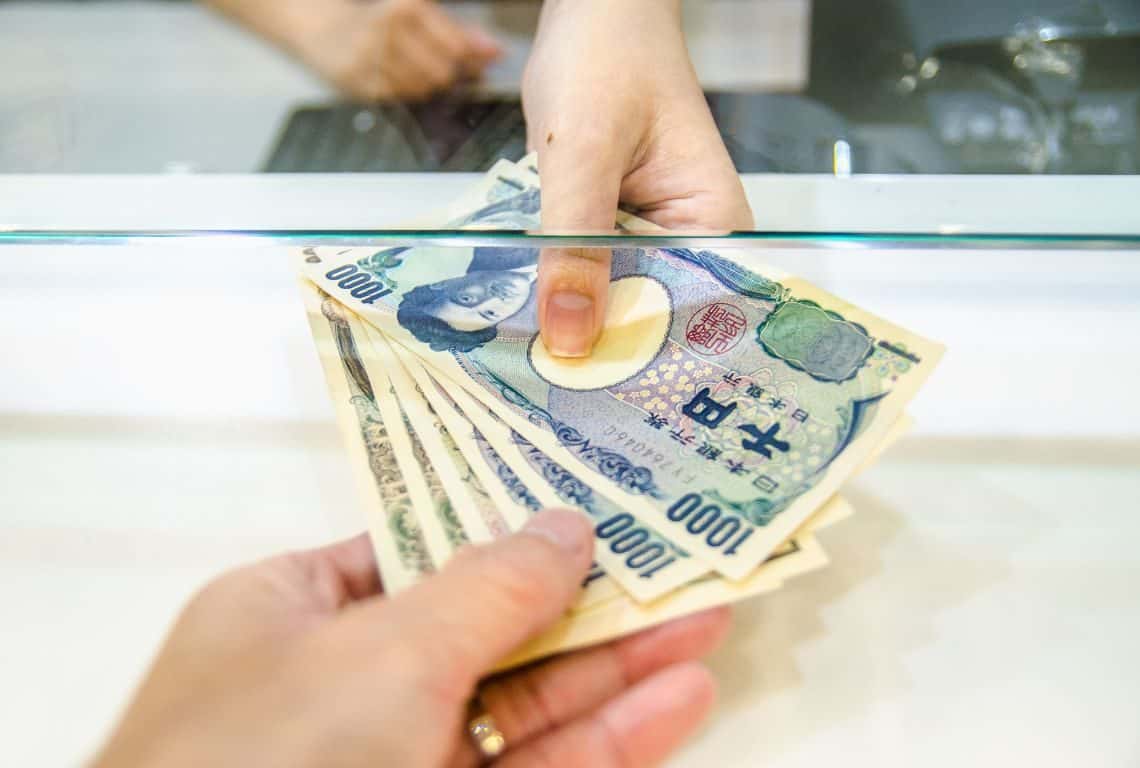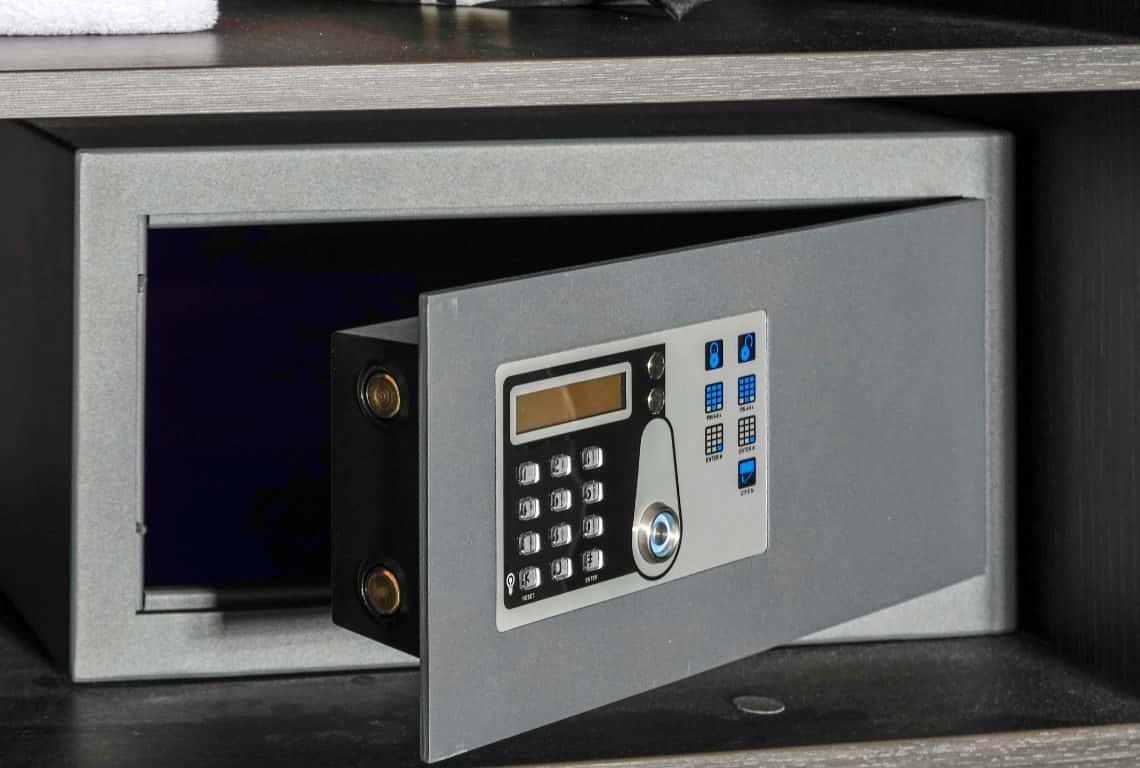This site uses affiliate links, meaning that if you make a purchase through our links, we may earn an affiliate commission.
Welcome to Japan, a captivating destination known for its rich culture, exquisite cuisine, and fascinating traditions. As you embark on your journey through this incredible country, it’s essential to familiarize yourself with Japanese currency to ensure a smooth and hassle-free experience.
In this guide to Japanese currency for tourists, we will walk you through everything you need to know about handling money in Japan.
Whether you are strolling through the bustling streets of Tokyo, exploring historic temples in Kyoto, or indulging in authentic street food in Osaka, understanding Japanese currency is vital for making purchases, navigating transportation systems, and engaging in everyday transactions.
From the iconic yen notes and coins to payment methods, exchange rates, and money-saving tips, we have got you covered.

- 1. The Japanese Yen - Denominations of Yen Banknotes and Coins
- 2. Currency Exchange - Best Places to Exchange Your Money
- 3. Cash or Card? Payment Methods in Japan
- 4. Budgeting Tips for Your Trip to Japan
- 5. Etiquette and Cultural Considerations When Making Payments and Tipping in Japan
- 6. Safety and Security Tips for Handling Money in Japan
- 7. Useful Japanese Phrases for Currency and Money Exchange
- 8. Intrepid Scout's Tips for Guide to Japanese Currency for Tourists
The Japanese Yen - Denominations of Yen Banknotes and Coins
When it comes to Japanese currency, the unit of exchange is the yen (¥). Understanding the yen’s denominations and features is essential for handling money in Japan. Let’s explore the basics:
- Yen Banknotes: The yen banknotes come in various denominations: ¥1,000, ¥2,000, ¥5,000, and ¥10,000. Each note showcases different historical figures, landmarks, or cultural motifs. Familiarize yourself with their appearance and respective values to easily identify and use them during transactions.
- Yen Coins: Yen coins are available in six denominations: ¥1, ¥5, ¥10, ¥50, ¥100, and ¥500. While the ¥1 and ¥5 coins are less commonly used, the rest are widely circulated. Be sure to have a handy coin purse or wallet compartment to keep them organized.
- Unique Features: Japanese banknotes incorporate several security features to prevent counterfeiting. These features include watermarks, holographic strips, microprinting, and tactile marks for the visually impaired. Taking a moment to familiarize yourself with these security features can help you authenticate banknotes and avoid counterfeit currency.
- Currency Symbols: The symbol for the Japanese yen is “¥,” which is often used to denote prices or amounts. It’s worth noting that the yen symbol is different from the dollar symbol “$” or the euro symbol “€.”
By understanding the denominations, appearance, and unique features of Japanese yen banknotes and coins, you will be better prepared to handle money confidently during your stay in Japan.
1,000 yen bill – this bill has been in use since 1945 and it is the lowest value yen bill. The front side of the bill has the image of the legendary regent and politician under Empress Suiko, Prince Shōtoku. The reverse side bears a drawing of Mt. Fuji and cherry blossoms.

5,000 yen bill – the front side has a portrait of Ichiyo Higuchi, a Meiji-era writer and poet. The reverse side depicts “Kakitsubata Flowers”, from a folding screen by Korin Ogata.

10,000 yen bill – the front side of this note has a portrait of Yukichi Fukuzawa, a Meiji-era philosopher and founder of Keio University. The reverse side has a drawing of the hoo (Chinese phoenix) in the Hall of the Phoenix, Byodoin temple.

Japanese coins are a fascinating aspect of the country’s currency system and hold a rich cultural significance. With their unique designs and varying values, these coins play an essential role in everyday transactions and reflect Japan’s history and traditions

Japanese Coins / Guide to Japanese Currency for Tourists
Currency Exchange - Best Places to Exchange Your Money
When traveling to Japan, it’s essential to exchange your home currency for the Japanese yen. Here are some key points to consider when it comes to currency exchange:
- Exchange Locations: Currency exchange services can be found at various locations, including airports, banks, post offices, and dedicated currency exchange offices. Airports often have multiple currency exchange counters, making it convenient to obtain yen upon arrival. Major train stations and tourist areas may also offer currency exchange services.
- Exchange Rates: Exchange rates fluctuate, so it is wise to compare rates from different providers to get the best value for your money. Keep in mind that currency exchange services may charge a commission or fee, which can vary between providers. Additionally, rates at airports and hotels may be slightly less favorable, so it is advisable to exchange a small amount initially and seek better rates elsewhere.
- ATMs: ATMs in Japan are widely available, and many accept foreign debit and credit cards. Look for ATMs labeled with international card logos such as Visa, Mastercard, or Plus. Convenience stores, post offices, and 7-Eleven outlets often have ATMs that support foreign cards.

- Prepaid Travel Cards: Consider obtaining a prepaid travel card, such as a Visa or Mastercard prepaid card, before your trip. These cards can be loaded with yen in advance and used for purchases or ATM withdrawals during your stay in Japan. Prepaid travel cards often offer competitive exchange rates and can provide a convenient and secure way to manage your money while traveling.
- Notify Your Bank: Before traveling, inform your bank or credit card company about your trip to Japan. This ensures they are aware of your international transactions and reduces the chances of your card being blocked for suspicious activity.
Remember to keep your exchanged yen and receipts in a secure place. It is advisable to carry a mix of cash and cards for flexibility. In the next section, we will explore the different payment methods commonly used in Japan, providing you with further options for managing your expenses.
Cash or Card? Payment Methods in Japan
In Japan, you will encounter a variety of payment methods, including cash and electronic payment options. Understanding how to use these methods will greatly enhance your convenience during your travels. Let’s explore the common payment methods in Japan:
- Cash: Cash is widely accepted throughout Japan, making it essential to carry yen with you. Many small businesses, local markets, and street vendors may only accept cash payments. Additionally, it is customary to pay with cash when visiting traditional establishments, such as ryokans (traditional inns) or certain restaurants.
- Credit and Debit Cards: Credit and debit cards are accepted at most major establishments, including hotels, department stores, restaurants, and larger retailers. International credit cards, such as Visa, Mastercard, and American Express, are commonly accepted. However, it’s worth noting that some smaller businesses, street food stalls, or local shops may only accept cash. Always carry some cash as a backup, especially when exploring more remote areas or local markets.
- ATMs: As mentioned earlier, ATMs in Japan are widely available, and many accept foreign debit and credit cards. ATMs can be found at post offices, convenience stores, and banks. However, be aware that not all ATMs are accessible 24/7, particularly in smaller towns or rural areas. Additionally, some ATMs may charge a fee for international transactions, so it’s advisable to check with your bank regarding any applicable fees.
- Cashless Payment Systems: Cashless payment systems, such as Suica and Pasmo, are prevalent in Japan. These rechargeable smart cards can be used for transportation, shopping, and even vending machines. Simply load money onto the card and tap it on the designated readers. They are particularly convenient for commuting on trains, buses, and subways. Many stores, restaurants, and convenience stores also accept mobile payment methods like Apple Pay or Google Pay.
- Currency Conversion Fees: When using credit or debit cards, it’s essential to be aware of any currency conversion fees that may be charged by your card issuer. Some banks charge a percentage-based fee for foreign currency transactions, so it’s advisable to check with your bank beforehand to understand the applicable fees.
Having a combination of cash and cards, along with familiarity with cashless payment systems, will ensure you are well-prepared to handle various payment situations during your time in Japan. In the next section, we will provide tips on budgeting and managing your expenses effectively.
Budgeting Tips for Your Trip to Japan
Managing your expenses and budgeting wisely are crucial aspects of any trip. Here are some practical tips to help you budget effectively while exploring Japan:
- Research Average Costs: Before your trip, research and familiarize yourself with the average costs of accommodation, meals, transportation, and attractions in the cities or regions you plan to visit. This will give you a baseline for budgeting and help you allocate your funds accordingly.
- Accommodation Options: Japan offers a wide range of accommodation options to suit different budgets. From luxurious hotels to budget-friendly guesthouses and capsule hotels, you can find something that aligns with your financial plans. Consider exploring different accommodation booking platforms to find the best deals and discounts.
- Dining Options: Japanese cuisine is renowned worldwide, and trying various local dishes is an integral part of the experience. To manage your dining expenses, explore a mix of dining options. While high-end restaurants can be expensive, you’ll also find affordable and delicious meals at local eateries, street food stalls, and convenience stores. Don’t miss the opportunity to indulge in authentic and affordable sushi, ramen, and bento boxes.

- Transportation: Getting around in Japan can be convenient and efficient, but it is essential to factor transportation costs into your budget. Consider purchasing a Japan Rail Pass if you plan to travel extensively by train, as it offers unlimited travel on Japan Railways (JR) lines for a fixed period. For shorter distances or within cities, public transportation like subways and buses provide cost-effective options.
- Free and Low-Cost Activities: Japan offers numerous free or low-cost activities that allow you to immerse yourself in the culture and attractions without breaking the bank. Explore public parks, gardens, temples, and shrines, many of which offer serene and picturesque settings. Take advantage of free walking tours, visit local markets, and participate in cultural events or festivals.
- Money-Saving Tips:
1. Purchase a prepaid travel card for convenient and secure transactions with favorable exchange rates.
2. Take advantage of discounted tourist passes for transportation or attraction entry.
3. Look for set menus or lunchtime specials at restaurants, which often offer better value for money.
4. Use discount coupons or vouchers available through guidebooks, websites, or tourist information centers.
Remember to track your expenses throughout your trip to stay within your budget. By planning ahead and making informed choices, you can enjoy a fulfilling experience in Japan without overspending. In the next section, we will discuss important etiquette and cultural considerations related to money in Japan.
Etiquette and Cultural Considerations When Making Payments and Tipping in Japan
Understanding the etiquette and cultural norms surrounding money in Japan is important to ensure respectful interactions and to avoid any unintended faux pas. Here are some key considerations:
- Politeness in Transactions: When making a payment or receiving change, it is customary to use both hands to offer or receive money, especially when dealing with cash in traditional establishments. This gesture demonstrates respect and politeness. Additionally, saying “arigatou gozaimasu” (thank you very much) after a transaction is appreciated.
- Tipping Culture: Unlike in some other countries, tipping is not a common practice in Japan. In fact, leaving a tip may be seen as confusing or even impolite. Service charges are typically included in bills at restaurants or hotels, so additional tipping is not necessary. Simply paying the stated amount is sufficient.

- Handling Cash in Public: When handling cash in public, it is considered polite to do so discreetly and avoid displaying large amounts. Using a wallet or a small money pouch to keep your cash organized and secure is advisable. This practice ensures personal safety and minimizes any potential unwanted attention.
- Shopping and Bargaining: While bargaining is not common in most retail settings in Japan, there may be some exceptions in certain markets or when purchasing high-value items. However, it is important to approach bargaining politely and respectfully, keeping in mind that it may not always be acceptable or successful. The marked prices in stores are generally considered final.
- Receiving Change: When receiving change, it is customary to inspect it briefly and acknowledge the amount received with a nod or a quick “arigatou gozaimasu.” This simple act shows attentiveness and appreciation.
By being mindful of these etiquette guidelines, you can navigate money-related interactions with grace and respect while enjoying a positive cultural experience in Japan.
In the next section, we will provide tips to ensure the safety and security of your money during your travels.
Safety and Security Tips for Handling Money in Japan
Keeping your money safe during your travels is essential. Here are some tips to ensure the safety and security of your money while in Japan:
- Carry a Secure Wallet or Money Pouch: Invest in a secure wallet or money pouch that has features like RFID-blocking material to protect your credit card information from electronic theft. Opt for a design that can be discreetly tucked away under your clothing to minimize the risk of pickpocketing.
- Divide Your Money: Avoid carrying all your cash in one place. Split your money into multiple pockets, wallets, or bags to have backup funds in case of loss or theft. This way, you’ll still have access to money even if one of your belongings is misplaced or stolen.
- Use Hotel Safes: Take advantage of the in-room safes provided by hotels to store your extra cash, credit cards, and other valuables. It’s a secure option that adds an extra layer of protection to your belongings.

- Be Cautious at ATMs: When using ATMs, be aware of your surroundings and choose well-lit, secure locations. Shield the keypad with your hand when entering your PIN, and ensure you take your card and receipt with you. If you encounter any suspicious devices or behavior around an ATM, find another machine and report it to the authorities if necessary.
- Keep Emergency Contact Information: Have a copy of important contact information, such as your bank’s customer service number and the local embassy or consulate, in case you need to report lost or stolen cards or encounter other financial emergencies.
- Notify Your Bank: Inform your bank about your travel plans and provide them with your contact information. This step helps prevent any unexpected issues with your cards and allows them to notify you in case of suspicious activity.
By following these safety and security tips, you can minimize the risk of financial mishaps and enjoy your trip to Japan with peace of mind.
In the next section, we will provide you with some useful Japanese phrases related to currency and money exchange that can assist you during your interactions.
Useful Japanese Phrases for Currency and Money Exchange
Knowing a few basic Japanese phrases related to currency and money exchange can greatly facilitate your transactions and communication with locals. Here are some useful phrases to keep in mind:
Currency Exchange:
- “Kawase o shimasu”: I would like to exchange currency.
- “Yen o kawase shimasu”: I would like to exchange yen.
- “Doko de kawase ga dekimasu ka?”: Where can I exchange currency?
Making Payments:
- “Kore o kudasai”: Please give me this.
- “Otsuri wa arimasu ka?”: Do you have change?
- “Kurejittokado wa tsukaemasu ka?”: Do you accept credit cards?
- “Arigatou gozaimasu”: Thank you very much.
Asking for Prices:
- “Kore wa ikura desu ka?”: How much is this?
- “Takai desu ne”: That’s expensive.
- “Yasui desu ne”: That’s cheap.
Expressing Gratitude:
- “Arigatou gozaimasu”: Thank you very much.
- “Sumimasen”: Excuse me or I’m sorry.
- “Onegai shimasu”: Please.
Remember, even attempting a few basic phrases in Japanese shows respect and effort, and locals will appreciate your attempt to communicate. Do not hesitate to use simple gestures, such as pointing to the price or showing the amount of money, to aid in your communication.
With these useful phrases in your repertoire, you’ll be better equipped to navigate currency-related interactions and communicate effectively during your trip to Japan.
Intrepid Scout's Tips for Guide to Japanese Currency for Tourists
There are additional resources and services that can assist you during your trip. Here are a few recommendations:
- Tourist Information Centers: Japan has numerous tourist information centers located in major cities and tourist destinations. These centers offer helpful guides, maps, and brochures, as well as multilingual staff who can provide personalized assistance regarding currency exchange, payment methods, and other travel-related queries.
- Travel Apps and Websites: Utilize travel apps and websites that offer currency conversion tools, real-time exchange rates, and information on nearby ATMs, currency exchange offices, and local discounts. Some popular apps include XE Currency, Trail Wallet, and Google Maps, which can help you locate nearby banks and ATMs.
- Local Banks and ATMs: If you encounter any difficulties with currency exchange or have specific questions related to your bank or card usage, visit a local bank branch or speak to their customer service representatives. They can provide you with up-to-date information and assistance tailored to your specific needs.
- Embassy or Consulate: In case of any major financial emergencies, such as lost or stolen passports, credit cards, or significant currency-related issues, contact your country’s embassy or consulate in Japan. They can provide guidance, support, and assistance in resolving such matters.
Remember to plan ahead, stay informed, and be proactive in seeking assistance when needed.
We hope this guide has equipped you with the necessary knowledge to navigate the world of Japanese currency and money management. Enjoy your trip, embrace the unique cultural experiences, and create unforgettable memories in the Land of the Rising Sun!
More Information About Japan:
Ultimate 16-DAY JAPAN ITINERARY for Marvelous Culture, History, and Nature
14 Amazing Things to Do in Arashiyama (Map+Useful Tips)
What to See at Nijo Castle in Kyoto (10 Top Things to Know)
Stunning Golden Pavilion in Kyoto (How to Visit and What to See)
Amazing Fushimi Inari Taisha in Kyoto (8 Things to Know Before You Visit)
First Visit to Kyoto – How to Visit and What to See (11 Things You Can’t Miss)
Perfect Day Trip to Miyajima from Kyoto, Osaka, or Hiroshima
10 Amazing Things to Do in Hiroshima You Can’t Miss of Your Visit
Now, It Is Your Turn, I Would Like to Hear Back from You!
Are you planning your trip to Japan?
Please let me know! Drop me a quick comment right below!
Click on any of the images below to get inspired and to help you with the planning process for your trip to Japan!





